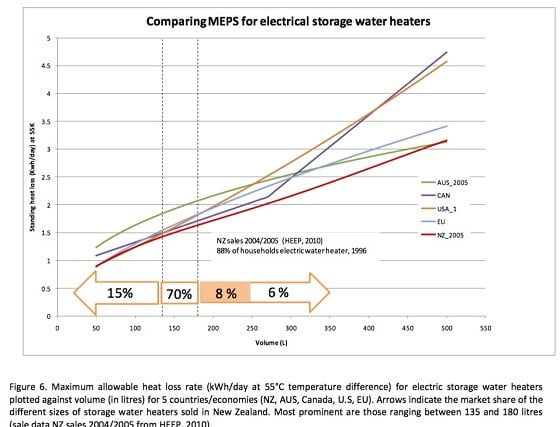Huchiz: The model is a Rheem 135L low pressure one, manufacture date was 3/2001.
So the 24 hours temp loss is about 8 deg, for 135L of water it is about 1.26KWH. (4.2*8*135*1000*1/3600*1/1000) Considering during normal use the temp will be higher in average, so let's say the normal daily heat loss is 1.5KWH max.
It's not that simple. The heat loss is related to the differential between the hot object and the ambient environment. At the start of your test it was 60-18(right?) but at the end of the test it was 52-18.
What you have to include is an 'e' to reflect that the transfer of heat is a first order logarithmic system.
Perhaps someone who paid more attention in maths class will come along now :-)
Another way as pointed out is to measure the input electrical power over the time period. You could get away with measuring the current and assume the voltage is constant which is almost true.



